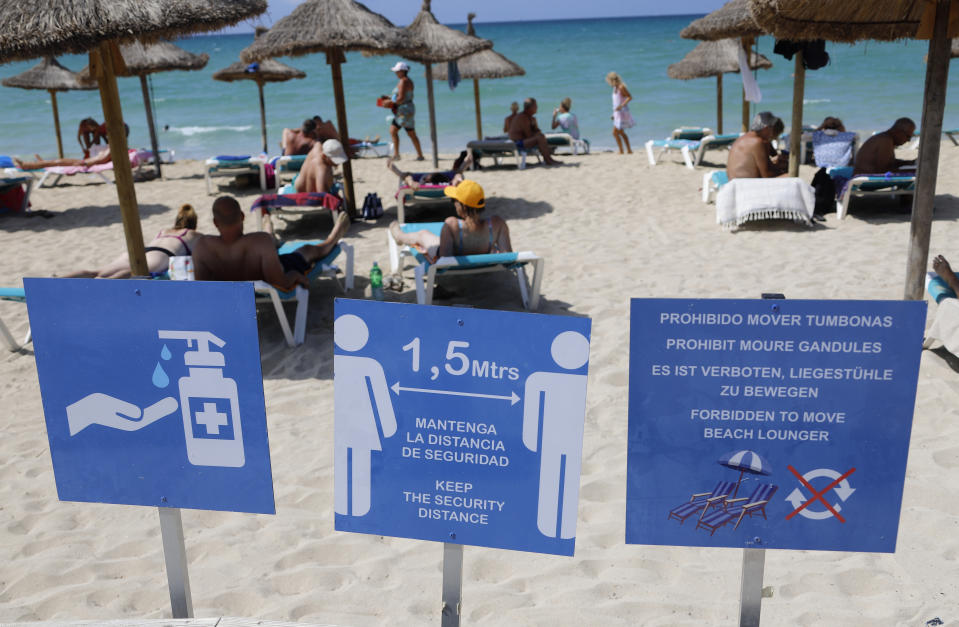Europe is ‘paying for summer holidays with winter lockdowns’, says expert

Europe is “paying for summer holidays with winter lockdowns”, a leading scientific expert has suggested.
Professor Devi Sridhar, scientific adviser to Scottish first minister Nicola Sturgeon, made the comment as she shared a new study that suggests that a coronavirus variant originating in Spanish farm workers now accounts for most UK cases.
Prof Sridhar shared a news story about the study, which has not yet been peer reviewed in a medical journal, with the comment: “Europe paying for summer holidays with winter lockdowns.”
Europe paying for summer holidays with winter lockdowns. https://t.co/IC4gZsdh60
— Prof. Devi Sridhar (@devisridhar) October 30, 2020
Writing on Twitter, she added: “I sometimes feel like we've overcomplicated the basics of infectious disease prevention: the virus moves when people move.
“Recognized by states since 1851 at first International Sanitary Conference in Paris given concerns about movement of people along trade routes.”
She went on to share an article she had penned for the New York Times in August warning that Europe would end up paying for its summer holidays with lockdowns over the winter period.
According to the new study, the variant called 20A.EU1 is known to have spread from farm workers to local populations in Spain in June and July, with people then returning from holiday in Spain most likely playing a key role in spreading the strain across Europe.
Watch: What do Covid-19 restrictions mean for upcoming festivities?
Dr Emma Hodcroft, lead author of the study and an evolutionary geneticist at the University of Basel, told BBC Radio 4’s Today programme that there was a “super-spreading event” among agricultural workers in Spain that had seen the virus then jump to the local population and spread through Spain.
“This happened in June and July, when travel was picking up again in Europe, and of course Spain’s a wonderful holiday destination and many people headed there,” she said.
“What we think happened is that rising cases in Spain combined with that increase in holiday travel allowed the virus to move to many different countries across Europe and, when it got there, it was able to spread quite successfully.”
Sridhar has been outspoken in her views on the way the coronavirus pandemic is being handled, including recently warning that any attempts to achieve herd immunity in the UK could lead to lasting health problems for the young.
Herd immunity is the belief a population can be protected from infection if a certain proportion of people have been exposed to it and developed immunity.
Professor Sridhar has warned that such a policy is a “minority view” among scientists and could potentially lead people to suffer long-term conditions, otherwise known as ‘long COVID’.
Watch: What is long COVID?
Coronavirus: what happened today
Click here to sign up to the latest news and information with our daily Catch-up newsletter

 Yahoo News
Yahoo News 
